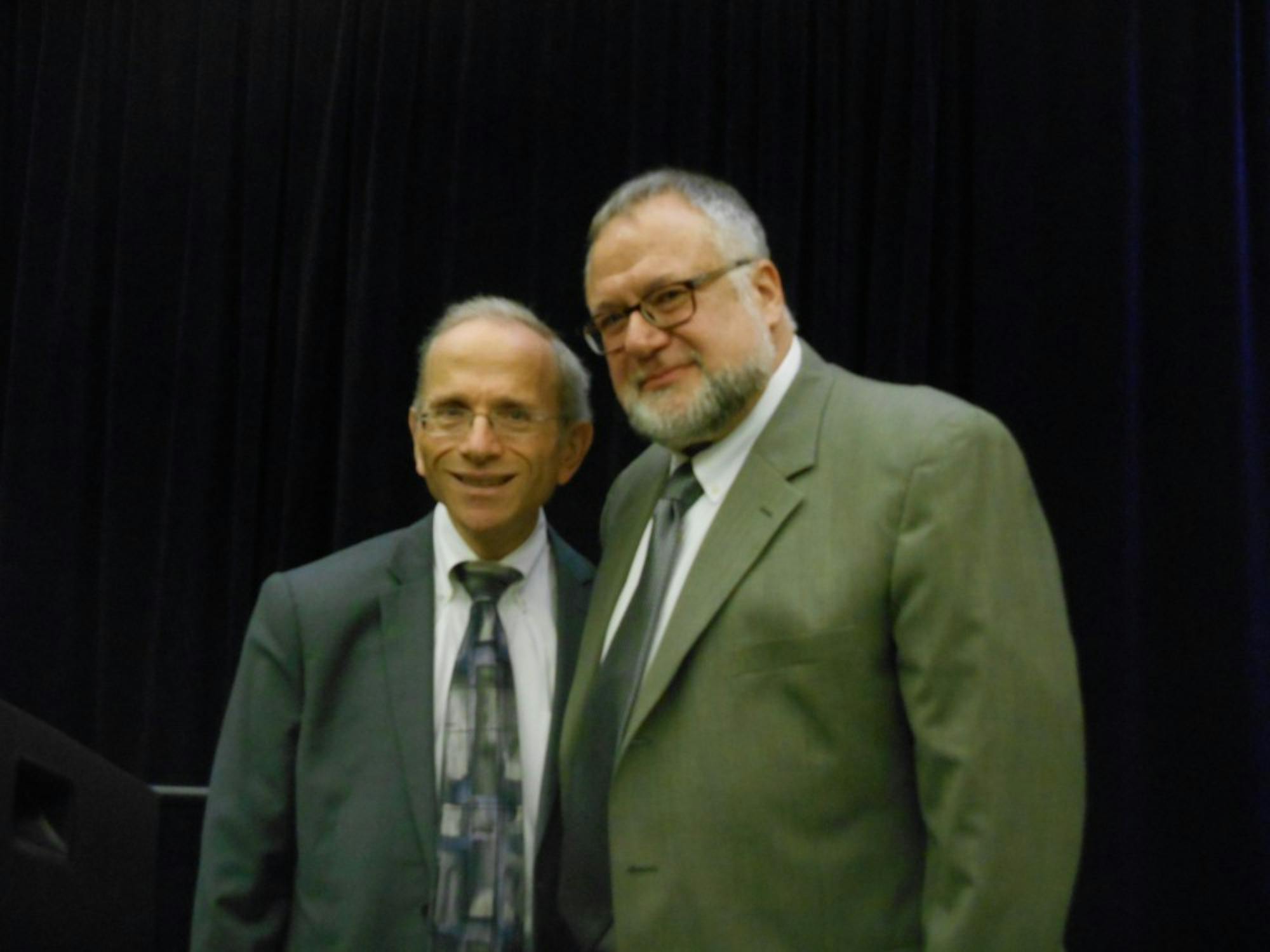Eastern Michigan University’s Distinguishing Speakers Series kicked off on Sept. 16, 2014, with Jonathan D. Sarna, Ph.D. of Brandeis University.
Sarna is the president of the Association of Jewish Studies, an author of more than 30 books, and highly regarded as one of the most prominent historians of American Judaism. He is the chief historian at the National Museum of American Jewish History in Philadelphia, Pa. and has been listed on the Forward’s annual list of the 50 most influential American Jews.
“I find it amazing that the Jewish Study Program can bring in someone like Dr. Sarna,” said Emily Franchy, an EMU sophomore in Theater. “We never learned this stuff in school.”
Sarna commanded a room filled with 134 guests including EMU students and community members. His message came to life as he retold the history of General Ulysses S. Grant’s General Order Number 11 using comedy and spirited movement on stage. The crowd always appeared attentive and at the edge of their seats and many times were heard laughing at what they were hearing.
“It was shocking that even after twelve years of schooling, I didn't even know that this happened,” said Meg Halstead, freshman in Anthropology.
Sarna discussed his book, “When General Grant Expelled the Jews”, and provided a thorough and thoughtful analysis of the account of how Grant issued an order to expel Jews from their homes in the midst of the Civil War.
Grant issued General Order No. 11 in 1862, it expelled all Jews from his military district – consisting of Kentucky, Mississippi and Tennessee. Grant was concerned about the smuggling of goods from the south to the north, and believed that Jews were responsible for all the smuggling. History later revealed that many people, including those in his own family (his father, Jesse Grant) and those under his command were engaged in the lucrative trade.
“It was eye-opening and part of Grant’s history that I didn't know about” said Jess Hainstock, an EMU senior.
Unfortunately for Grant, his message never made it very far from his headquarters, but it had reached enough people that Jewish leaders took it to President Lincoln, who immediately revoked the order. “By direction of the General in Chief of the Army at Washington, the General Order from these Head Quarters expelling Jews from this Department is hereby revoked,” Lincoln wrote.
Lincoln met with Jewish leaders and reaffirmed that he knew “of no distinction between Jew and Gentile.” Further stating “To condemn a class, is to say the least, to wrong the good with the bad. I do not like to hear a class or nationality condemned on account of a few sinners.”
At the time that General Order No. 11 was issued by Grant, Lincoln was busy writing the Emancipation Proclamation. It was feared that the black slaves would be free through the Proclamation, and the Jews would replace them through the General Order No. 11, since both came out in the same year.
“Jews were not the only victims of Human Rights violations in the Civil War, but they were the only ones expelled as a class during the Civil War,” Sarna said. “Jews came to personify the wartime ills to many, and many believed that Jews preferred to benefit from the war without fighting in it.”
After Grant was elected President of the United States, he released a statement that he did not hate Jews and “I do not sustain that order.” He made a public apology to Jews and appointed many Jews to high offices. Grant became the first U.S. President to travel to Israel.
In the end, however, General Order No. 11, which blamed Jews for widespread smuggling and cotton speculation affecting the area under Grant’s command, would be the most notorious anti-Jewish official order in American history.
When Grant passed away, his death was mourned by the Jewish community because while he began as the enemy, he had ended as an ally and friend of the Jewish community.
“I want the audience to understand that people can change, and hatred can be overcome,” said Sarna “I wanted to illuminate a chapter in the history of the Civil War that is not well known.”










